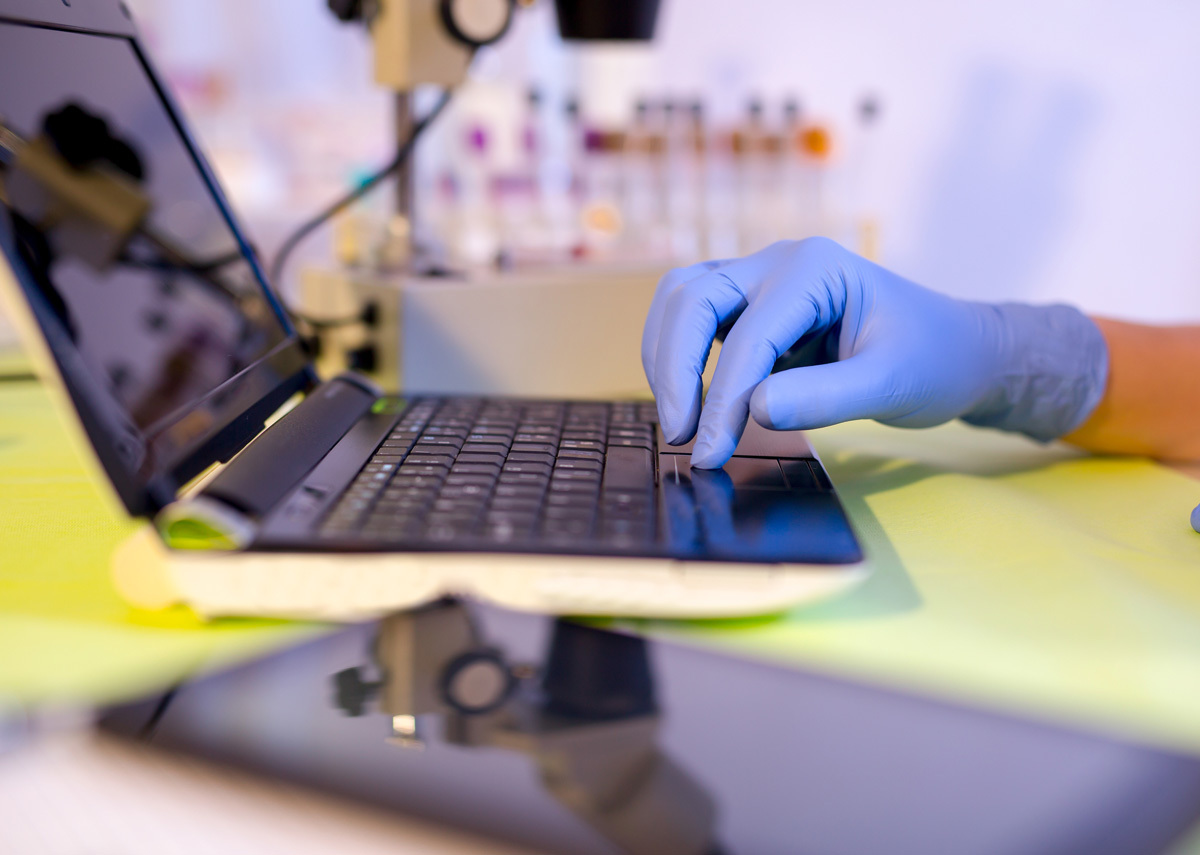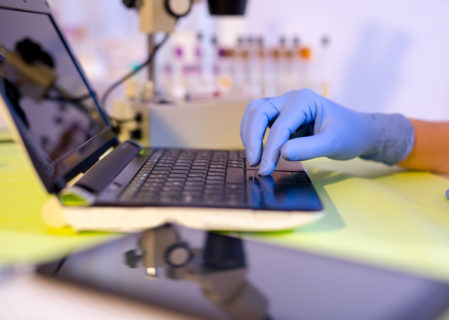COVID-19 has had a huge impact on business in all industries on a global scale. This has been a testing year for many companies. The sudden lockdown has not only been a shock to the system, but it has exposed many shortcomings in the current business process as well. Many firms have found themselves evaluating every internal function and having to adapt their roles and responsibilities overnight.
The life science industry is a case in point, especially when it comes to digital transformation. Companies that were previously looking at their digital plans from a five-year point of view are now pushing for these plans to be completed in months (or even weeks).
Let’s take a closer look at some of these challenges:
#1 Content and virtual engagement is now key
It’s no secret that in the past, attendance at medical conferences has been critical for life science companies who wanted to engage with their customers. We have supported many of our life science clients with printed banners, tablecloths and other marketing collateral to help them to stand out at such events.
However, the Coronavirus lockdown placed severe restrictions on face-to-face meetings like this—which has meant pharma companies now have to look online in order to keep the conversations with their potential customers going.
The focus has now shifted to fulfilling customer needs online, through the use of educational pieces for consumers, and scientific exchange opportunities with peer groups.
Our clients, Provizio® SEM Scanner, for example, not only have an Academy section on their website where customers can learn about pressure ulcers and their prevention—but also a section that talks about real-world evidence to help those in the medical profession learn more about the product as well. This allows them to not only share engaging and meaningful content, but it’s also done in a very accessible way. Provizio is also building on this digital success by running webinars—as they learnt that their customers wanted to be able to consume the information this way as well.
#2 There’s still room for improvement when it comes to Customer Relationship Management
Serving up great content in a timely manner may be the obvious solution to meeting your customer’s needs during these unpredictable times, but it’s not within every company’s skill set to be able to do that at the moment.
This may be because it requires skills such as being able to focus on customer needs and react quickly to changes in these while being able to learn and adapt at the same time. Challenging stuff, especially if your company is not already digitally adept.
As we’ve mentioned above, life science companies have traditionally relied on face to face engagements as they felt that these gave them the most ROI—but this medium has suddenly been taken away—and may never get back to the same level as before. Now, companies need to start using CRM tools to inform them about their customers, which will allow them to be smart about which digital channels they use to help connect their customer journey.
#3 Omnichannel customer experiences are the future
Following on from this, life science companies need to realise that their future success lies in an omnichannel approach.
Omnichannel is not to be confused with multichannel—which is more about spanning multiple channels to engage with customers. A true omnichannel approach requires firms to provide a personalised and seamless customer experience across all channels.
To do this, data must be collected from all channels, and then organised in a way that supports ROI and provides decision-makers with the analytics they need to make the correct commercial decisions. Zool can help by providing you with a more optimised, fully efficient marketing mix, as we can exploit the full benefits of each channel you wish to add to your approach.
#4 Clinical trials have suffered most from the COVID-19 pandemic
The COVID-19 pandemic has had an almost devastating effect on clinical trials, with many of them being delayed. Some trials have stopped completely, while others have continued at a slower pace as they contain measures that can be remotely managed.
Those trials that already contained some element of digitalisation, such as collecting information relating to the patient, have fared better than those trials where there was no existing technology available to do this.
Key takeaways
So, what are the key takeaways from how the COVID-19 pandemic has impacted life science companies?
- Companies that have invested in their digital capabilities stand more chance of maintaining their operations in times of disruption
- Customer expectations have changed because of the pandemic, and they’ll continue to do so, and if companies want to be successful they need to look closely at the customer experience they’re delivering
- Firms need to adopt the best technologies available to them to be able to offer their customers the experiences they require
Conclusion
The COVID-19 pandemic has placed pressure on all commercial companies to be able to continue serving their customers in conditions that they never imagined they’d have to trade-in. It has been tough, but those who have grasped the advantages that technology and digital services can offer them have been the most successful and will remain the most competitive.
With this in mind, Zool is here to help you with all of your marketing needs—both digital and offline—to ensure your customer journey is seamless and painless. Contact us today to find out how we can help you.
What Impact has COVID-19 had on the Life Science Industry?
Life Science / Nov 9, 2020
COVID-19 has had a huge impact on business in all industries on a global scale. This has been a testing year for many companies. The sudden lockdown has not only been a shock to the system, but it has exposed many shortcomings in the current business process as well. Many firms have found themselves evaluating every internal function and having to adapt their roles and responsibilities overnight.
The life science industry is a case in point, especially when it comes to digital transformation. Companies that were previously looking at their digital plans from a five-year point of view are now pushing for these plans to be completed in months (or even weeks).
Let’s take a closer look at some of these challenges:
#1 Content and virtual engagement is now key
It’s no secret that in the past, attendance at medical conferences has been critical for life science companies who wanted to engage with their customers. We have supported many of our life science clients with printed banners, tablecloths and other marketing collateral to help them to stand out at such events.
However, the Coronavirus lockdown placed severe restrictions on face-to-face meetings like this—which has meant pharma companies now have to look online in order to keep the conversations with their potential customers going.
The focus has now shifted to fulfilling customer needs online, through the use of educational pieces for consumers, and scientific exchange opportunities with peer groups.
Our clients, Provizio® SEM Scanner, for example, not only have an Academy section on their website where customers can learn about pressure ulcers and their prevention—but also a section that talks about real-world evidence to help those in the medical profession learn more about the product as well. This allows them to not only share engaging and meaningful content, but it’s also done in a very accessible way. Provizio is also building on this digital success by running webinars—as they learnt that their customers wanted to be able to consume the information this way as well.
#2 There’s still room for improvement when it comes to Customer Relationship Management
Serving up great content in a timely manner may be the obvious solution to meeting your customer’s needs during these unpredictable times, but it’s not within every company’s skill set to be able to do that at the moment.
This may be because it requires skills such as being able to focus on customer needs and react quickly to changes in these while being able to learn and adapt at the same time. Challenging stuff, especially if your company is not already digitally adept.
As we’ve mentioned above, life science companies have traditionally relied on face to face engagements as they felt that these gave them the most ROI—but this medium has suddenly been taken away—and may never get back to the same level as before. Now, companies need to start using CRM tools to inform them about their customers, which will allow them to be smart about which digital channels they use to help connect their customer journey.
#3 Omnichannel customer experiences are the future
Following on from this, life science companies need to realise that their future success lies in an omnichannel approach.
Omnichannel is not to be confused with multichannel—which is more about spanning multiple channels to engage with customers. A true omnichannel approach requires firms to provide a personalised and seamless customer experience across all channels.
To do this, data must be collected from all channels, and then organised in a way that supports ROI and provides decision-makers with the analytics they need to make the correct commercial decisions. Zool can help by providing you with a more optimised, fully efficient marketing mix, as we can exploit the full benefits of each channel you wish to add to your approach.
#4 Clinical trials have suffered most from the COVID-19 pandemic
The COVID-19 pandemic has had an almost devastating effect on clinical trials, with many of them being delayed. Some trials have stopped completely, while others have continued at a slower pace as they contain measures that can be remotely managed.
Those trials that already contained some element of digitalisation, such as collecting information relating to the patient, have fared better than those trials where there was no existing technology available to do this.
Key takeaways
So, what are the key takeaways from how the COVID-19 pandemic has impacted life science companies?
- Companies that have invested in their digital capabilities stand more chance of maintaining their operations in times of disruption
- Customer expectations have changed because of the pandemic, and they’ll continue to do so, and if companies want to be successful they need to look closely at the customer experience they’re delivering
- Firms need to adopt the best technologies available to them to be able to offer their customers the experiences they require
Conclusion
The COVID-19 pandemic has placed pressure on all commercial companies to be able to continue serving their customers in conditions that they never imagined they’d have to trade-in. It has been tough, but those who have grasped the advantages that technology and digital services can offer them have been the most successful and will remain the most competitive.
With this in mind, Zool is here to help you with all of your marketing needs—both digital and offline—to ensure your customer journey is seamless and painless. Contact us today to find out how we can help you.
Array
